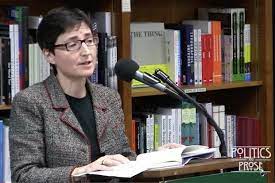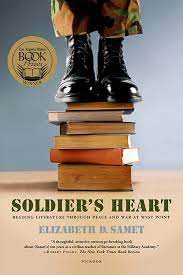After @biden's tough call to provide Ukraine with 100s of 1000's of rounds of cluster munitions, Ukrainian MOD @oleksiireznikov provides rationale & assurances (in 5 statements) of how they will be used.
But the debate continues, as some US senators now question that call. 1/8
But the debate continues, as some US senators now question that call. 1/8
https://twitter.com/oleksiireznikov/status/1677410470108471298
Reznikov's 5 principles:
-only used for "deoccupation" of UKR territory
-won't use in urban areas (unlike Russians)
-UAF will keep records of where rounds are fired
-those areas will be "prioritized" for de-mining after the war
-UKR will report effectiveness to allies. 2/
-only used for "deoccupation" of UKR territory
-won't use in urban areas (unlike Russians)
-UAF will keep records of where rounds are fired
-those areas will be "prioritized" for de-mining after the war
-UKR will report effectiveness to allies. 2/
There are pros & cons to providing cluster munitions.
It was a tough moral call by @POTUS to decide to provide this ammo now...primarily based on UAF running low of arty ammo they need today.
The DPICM rounds will bridge a gap while more precision rounds are built. 3/
It was a tough moral call by @POTUS to decide to provide this ammo now...primarily based on UAF running low of arty ammo they need today.
The DPICM rounds will bridge a gap while more precision rounds are built. 3/
It was a tough call because the military - & NATO allies - understand what these rounds can & can't do.
The CAN seriously damage some equipment & they WILL cause casualties on groupings of personnel.
They CAN'T clear minefields & they AREN'T effective in clearing trenches. 4/
The CAN seriously damage some equipment & they WILL cause casualties on groupings of personnel.
They CAN'T clear minefields & they AREN'T effective in clearing trenches. 4/
Additionally, once fired into an area (an enemy position), that area then POSES RISKS to friendly personnel maneuvering through that area.
The locations where they are fired MUST be marked and avoided.
There WILL BE duds. 5/
The locations where they are fired MUST be marked and avoided.
There WILL BE duds. 5/
Dept of Defense suggests the dud rate will be 1-3%. I believe that may be conservative, but I hope it's true.
But in each artillery shell there are 72-88 "bomblets" (each smaller than a hand grenade).
2% of 88 is about 2-3 "duds" per round.
100k rounds = approx 2-300K duds 6/
But in each artillery shell there are 72-88 "bomblets" (each smaller than a hand grenade).
2% of 88 is about 2-3 "duds" per round.
100k rounds = approx 2-300K duds 6/
The dud rate for DPICM rockets fired from HIMARS - the M26 rockets has over 600 bomblets - covers a much larger areas & also has a much higher dud percentage.
That's why Ukrainian HIMARS will not be firing DPICM
Duds & unintended civilian casualties are the moral issue. 7/
That's why Ukrainian HIMARS will not be firing DPICM
Duds & unintended civilian casualties are the moral issue. 7/
@POTUS says he "talked to" our allies about it, but suspect most didn't agree. Especially some in NATO.
But I can understand the US rationale for action & believe Reznikov's messaging of UKR principles is helpful. I also understand why some senators (& allies) are upset. 8/
But I can understand the US rationale for action & believe Reznikov's messaging of UKR principles is helpful. I also understand why some senators (& allies) are upset. 8/
With war, some long term values and political objectives are often subject to short term requirements and the requirement to execute distasteful actions.
This is the center of this complex issue.
Ukraine's sovereignty and freedom take priority. 9/9
This is the center of this complex issue.
Ukraine's sovereignty and freedom take priority. 9/9
• • •
Missing some Tweet in this thread? You can try to
force a refresh

 Read on Twitter
Read on Twitter









